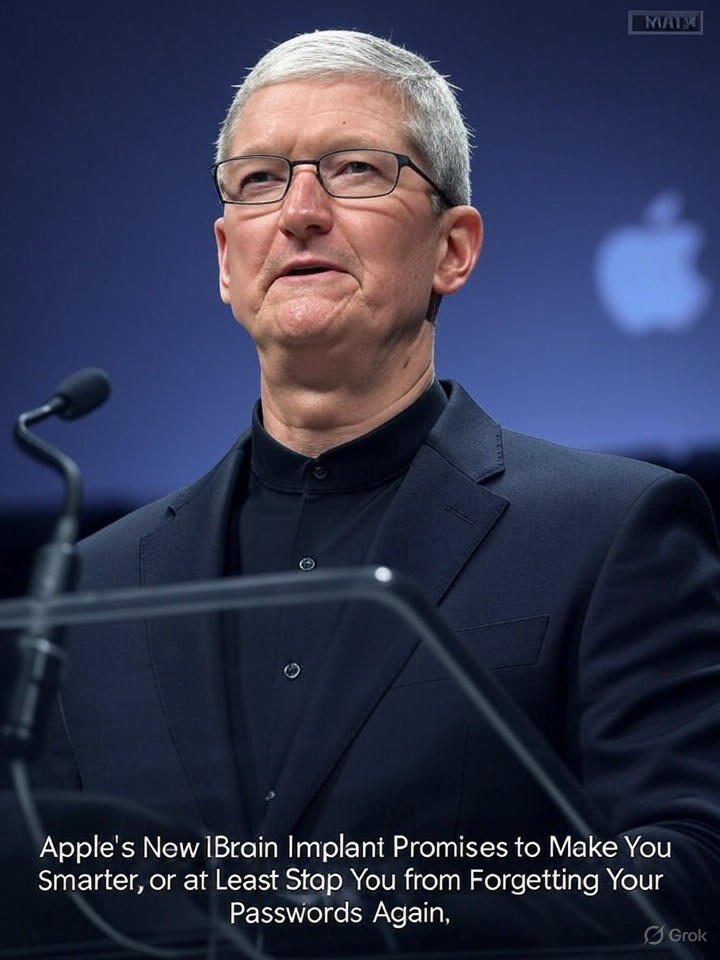CUPERTINO, CA – In a keynote that had tech enthusiasts drooling more than a toddler with a new iPad, Apple CEO Tim Cook announced the iBrain, a revolutionary neural implant designed to fuse your gray matter directly with your ecosystem of overpriced gadgets. 'Think different? Now you'll think Apple,' Cook quipped, as the audience clapped like seals at a fish buffet.
The iBrain promises to enhance cognitive functions by offloading mundane tasks to the cloud. Forgot your anniversary? The implant will subtly remind you via a mild electric shock. Can't recall that obscure trivia fact during a heated bar argument? iBrain's got your back, pulling data straight from Wikipedia while making it look like your own genius.
Privacy advocates are already up in arms, but Apple assures users that all thoughts will be encrypted – unless, of course, they're about switching to Android, in which case they'll be flagged for immediate counseling. 'Your thoughts are safe with us,' said an Apple spokesperson, 'safer than in your own head, probably.'
Early adopters are lining up, with beta testers reporting side effects like involuntary humming of Apple jingles and an inexplicable urge to buy the latest iPhone every six months. One tester claimed, 'I used to forget my keys all the time. Now, I forget why I ever doubted Apple's vision for humanity.'
Critics worry about the implant's potential for corporate mind control, but Apple dismisses these concerns as 'paranoid ramblings from people who still use wired headphones.' The company plans to roll out iBrain worldwide, starting at a modest $999, with premium features like 'ad-free thinking' available via subscription.
In a surprising twist, the iBrain also includes a feature to block unwanted thoughts, such as regrets over past purchases or doubts about the meaning of life. 'Why ponder existence when you can ponder your next app update?' Cook asked rhetorically, to thunderous applause.
As the world braces for a future where brains are just another Apple accessory, one thing is clear: forgetting your passwords will be a thing of the past. Just don't forget to read the terms of service – all 500 pages of them.

